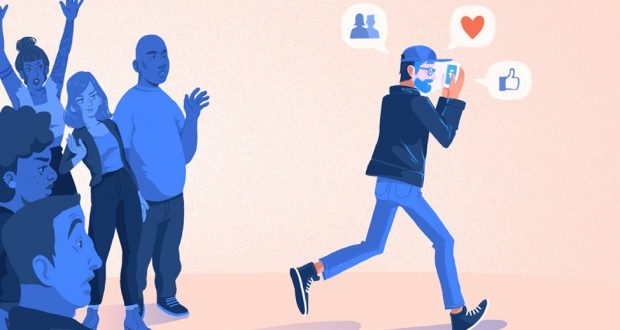By: Guest Author
Published: June 12, 2020
Written by Dr. Harry Horgan- Guest Contributor
During our youth years, we’re surrounded by peers that are going through changes and they give in to societal pressure to look a certain way. In today’s age, this has been heightened by social media.
There’s no doubt that social media can and has negatively affected everyone’s self-perception, self-esteem and mental health. The unrealistic images and videos that we view on social media make us believe that there is a certain way we need to look like. It leads to many teenagers, girls especially, feeling dissatisfied with themselves and can lead them to take drastic measures that require mental health treatment and could affect their overall wellbeing.
There have been many instances where teenagers, and many adults, will delete their social media accounts because it starts to affect their mental health. There’s a constant feed of celebrities, models and influencers showing off their seemingly perfect lives and bodies. This creates a pressure that if you’re on social media, you need to abide by social media rules – you need to wear the right outfit, use specific filters that alter your appearance, or take photographs at expensive places.
It can cause users to start to change their personalities in order to appeal to their peers. You start to mold yourself based on what you think people want to see. You start to create content that doesn’t stay true to yourself in order to gain likes and shares.
Social media sets up unrealistic scenarios of the perfect life. It can pressure you to compare yourself to others you may not even know in person. It’s important to remember that everything shared online can be edited and skewed to portray something that may not even be there. You end up comparing yourself to the made-up idea of the “perfect person” because that’s all you see. You aren’t aware of any negative aspects of that person’s life because they do not showcase the low moments. The more time we spend comparing ourselves to others, it starts to affect our mental health and can lead to severe depression.
Social media also makes you crave validation. The likes and comments you receive on your posts make you feel good about yourself and you keep wanting to chase that feeling. It’s completely normal to feel good when you do receive interaction but it’s crucial to identify how this is the start of how we begin to change ourselves in order to feel instant gratification. But there comes a time where you may not receive as many likes as you’d hope and you start to feel bad about yourself.
What did you do wrong? Am I not attractive enough in this photo? Did I use the wrong filter?
It’s a vicious cycle of questions that won’t be answered, leaving you wondering and wanting more. The more likes, the better you feel. When this happens, we tend to place other people’s opinions above our own – we let others determine our self-worth and control how we showcase our lives on the internet. We begin to post to satisfy others, rather than ourselves.
Social media is also known to intensify eating disorders, especially in young women. Because of the tendency to compare themselves with women on the internet, they start to feel concerned about the appearance of their bodies.
Not only does social media impact how we view ourselves, but it tends to affect our relationships and the way we communicate with other humans. The concept of ‘FOMO’, the fear of missing out, is rampant amongst social media users. When they view photos of friends having parties or get-togethers without them, they start to feel insecure and lonely. It makes you feel left out and leaves you questioning the true nature of the friendship you had with the person in the first place.
It’s so important for us to forge personal and meaningful connections with other human beings but this can be hard when we’re glued to our devices. We’re so focused on what celebrities and the whole world is up to, that we forget to pay attention to our families and friends in person.
So, to answer the question at hand – yes, social media does affect the way you view yourself. It’s up to you to change the way it makes you feel. Remember, that you are in control.
About Harry
This post was written by Dr. Harry Horgan.He loves to write on issues related to mental health, neurology, brain treatment and is a frequent contributor to many blogs and online publications. 

The views expressed herein this article, written by a guest contributor, do not necessarily represent those of the Red Hot Mamas organization. The content is for informational purposes and should not substitute the advice of your doctor.
 Red Hot Mamas In Charge of Change.
Red Hot Mamas In Charge of Change.




